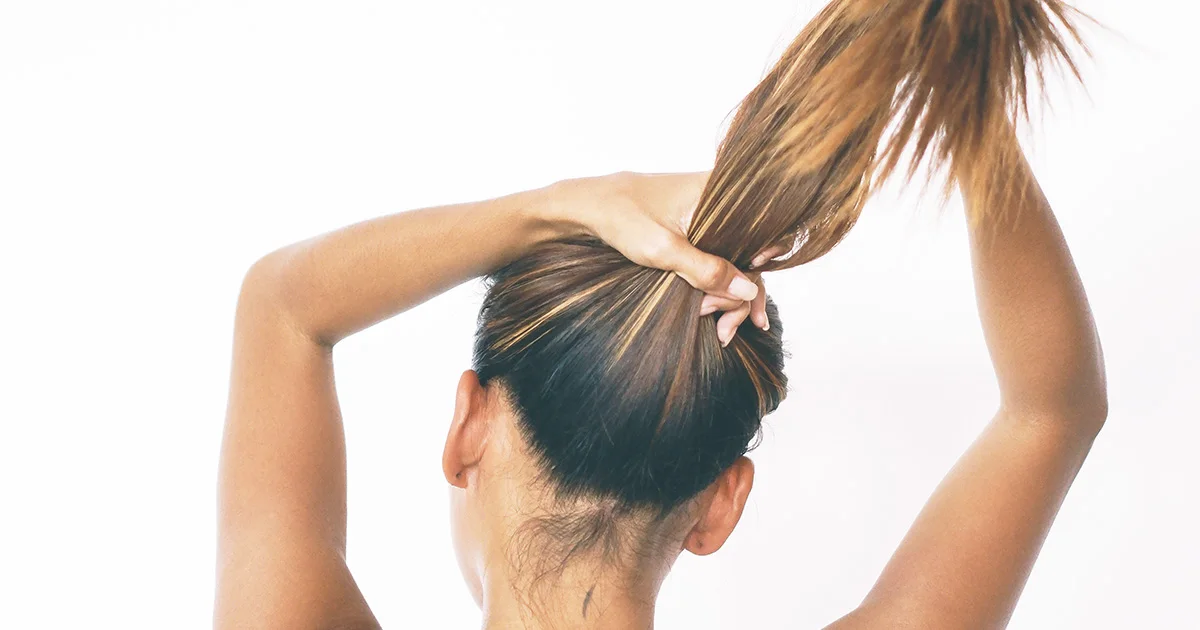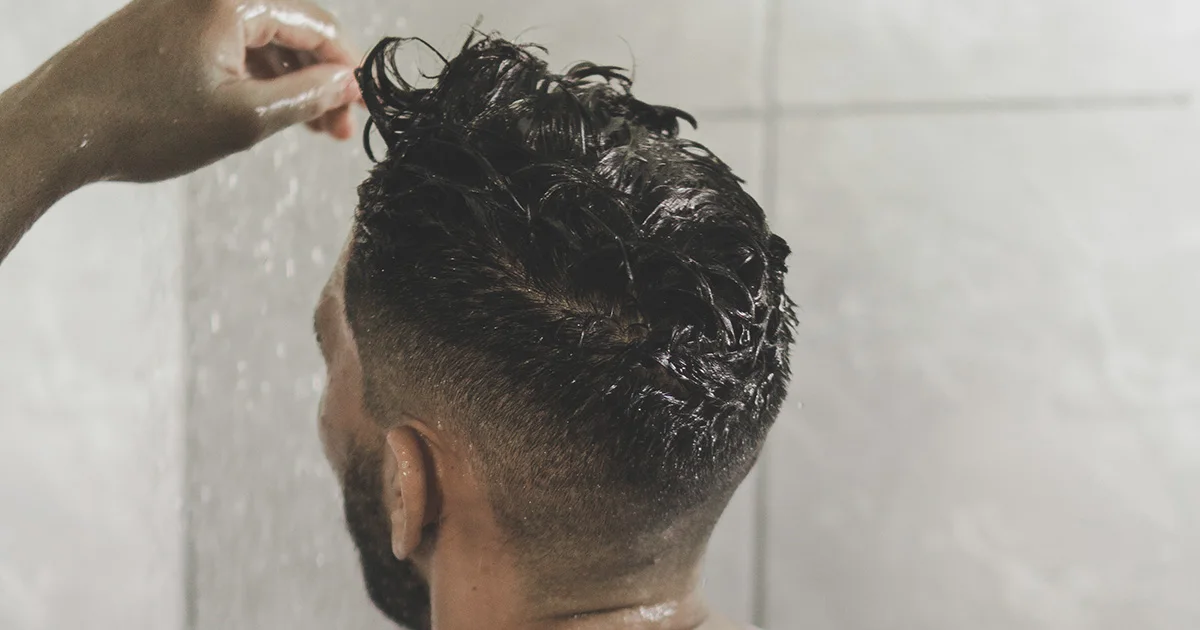Here's what we'll cover
Here's what we'll cover
Here's what we'll cover
Isotretinoin (an oral medication previously sold under the brand name Accutane) is often prescribed to help with severe acne—but it also carries the risk of some side effects such as hair loss. Read on to learn more about Accutane-related hair loss and what you can do about it.
What is Accutane?
Accutane was a brand name of the prescription medication, isotretinoin, that was prescribed for treating severe acne, often hormonal acne.
Although Accutane itself was taken off the market in 2009 after controversial associations were made linking it to an increased risk of inflammatory bowel disease (one of a few rare but serious potential side effects of isotretinoin), the generic version of the drug is still available and is prescribed for acne and other medical conditions (Pile, 2021).
Despite Accutane’s removal from the market, some people still colloquially refer to the generic drug isotretinoin as Accutane.
Does Accutane cause hair loss?
Yes, Accutane (isotretinoin) can cause hair thinning or loss by disturbing the normal hair cycle or affecting hair follicles—especially in people who are sensitive to it or are on high doses (Kmieć, 2013; Pile, 2021).
Why does isotretinoin cause hair loss?
Isotretinoin treatment may cause hair loss by:
Elevating your vitamin A levels too much: Believe it or not, it’s possible to have too much of certain vitamins and minerals. Isotretinoin is derived from vitamin A, and having excess vitamin A in the body has been associated with problems like hair loss (Olson, 2021).
Suppressing your body’s production of sebum: Isotretinoin works for acne by suppressing your skin’s sebum production. (Sebum is an oily substance that keeps your skin moisturized and acts as a protective coating on the skin.) Suppressing sebum production is part of why skin dryness is a common side effect of this medication. Scalp sebum is important for hair growth, which may be why some people experience hair thinning and loss while taking this drug (Kmieć, 2013).
How common is Accutane hair loss?
Hair loss due to isotretinoin isn’t that common.
A 2022 meta-analysis that analyzed 22 studies found hair loss to be a side effect in 3–6% of patients taking low doses of isotretinoin. The higher the dose of Accutane and the longer it is taken, the more hair loss may occur. Be sure to work with your doctor so that they can tailor your dose specifically to you (Kmieć, 2013; Lytvyn, 2022).
How long does hair loss last after Accutane?
Fortunately, hair loss after isotretinoin (or other vitamin A derivatives) seems to be temporary. Hair regrowth typically begins after you stop treatment (Pastuszka, 2011). Sometimes, it can take a few months for hair to revert to its original state.
Can you reverse Accutane hair loss?
After isotretinoin treatment ends, lost hair can regrow.
There are also things you can do while you’re on treatment. While taking isotretinoin, you should keep in close contact with your dermatologist or healthcare provider so that they can tailor your dosage regimen to you and your body.
That way, you can increase or decrease the dose based on your particular reaction. Since thinning hair is thought to be a dose-dependent side effect, noticing it might mean you need to decrease your dose (Pastuszka, 2011).
Preventing hair loss while on isotretinoin
Most people would understandably prefer not to lose hair at all. The good news is that there are things you can do to try and prevent hair loss while taking isotretinoin. Some of these strategies might still be helpful even if you have already experienced hair loss:
Take as low a dose of isotretinoin as is effective
Work with your healthcare provider to start with a low dose, if appropriate, to minimize the chances that the medication will affect your hair health.
Avoid vitamin A supplements
Remember, getting too much vitamin A can actually cause more hair loss, and isotretinoin is already derived from vitamin A (Olson, 2021). If you take a multivitamin, try to look for one without vitamin A.
Protect your skin
Isotretinoin causes sensitive, dry skin that is prone to sunburn, so make sure to cover your head with a hat or scarf to avoid further stress to your scalp and hair follicles from the sun’s rays.
Part of protecting your skin is also ensuring you are using the right moisturizing products because isotretinoin can be so drying. Consider using moisturizing products for your scalp, which can include shampoo, conditioner, or leave-in products.
Eat a healthy, nutrient-rich diet
Eating a balanced, healthy diet rich in leafy vegetables, lean meats, fish, beans, whole grains, and eggs can help ensure you have plenty of vital nutrients that healthy hair needs.
While nutritional supplements are also an option, they are only helpful for those with actual vitamin deficiencies (and can sometimes worsen hair loss if you take them without a deficiency), so consult your healthcare provider before taking supplements (Guo, 2017).
Manage your stress
Ongoing and intense stress is a well-known contributor to hair loss—and experiencing severe acne can certainly cause stress (Al Aboud, 2021).
Look for ways to realistically reduce stress in your life, like trying mindfulness meditation, practicing good self-care, reducing work and home stress, and possibly therapy or medication if necessary.
Exercise regularly
Getting exercise regularly can help you manage stress and boost circulation, which can improve hair health and regrowth.
The bottom line: While hair loss can occur when taking isotretinoin to treat severe acne, it’s somewhat uncommon and is usually temporary. But if you’re feeling distressed about the amount of hair thinning or hair loss, reach out to your healthcare provider to see if an alternative treatment plan is available based on your unique needs.
DISCLAIMER
If you have any medical questions or concerns, please talk to your healthcare provider. The articles on Health Guide are underpinned by peer-reviewed research and information drawn from medical societies and governmental agencies. However, they are not a substitute for professional medical advice, diagnosis, or treatment.
References
Akpolat, D. (2021). Unexpected effects of oral isotretinoin in adolescents with acne vulgaris. Cureus , 13 (8), e17115. doi:10.7759/cureus.17115 Retrieved from https://www.ncbi.nlm.nih.gov/pmc/articles/PMC8437010/
Al Aboud, A. M. & Zito, P. M. (2021). Alopecia. StatPearls . Retrieved on May 3, 2022 from https://www.ncbi.nlm.nih.gov/books/NBK538178/
Guo, E. L. & Katta, R. (2017). Diet and hair loss: Effects of nutrient deficiency and supplement use. Dermatology practical & conceptual , 7 (1), 1–10. doi:10.5826/dpc.0701a01. Retrieved from https://www.ncbi.nlm.nih.gov/pmc/articles/PMC5315033/
Kmieć, M. L., Pajor, A., & Broniarczyk-Dyła, G. (2013). Evaluation of biophysical skin parameters and assessment of hair growth in patients with acne treated with isotretinoin. Postepy dermatologii i alergologii , 30 (6), 343–349. doi:10.5114/pdia.2013.39432. Retrieved from https://www.ncbi.nlm.nih.gov/pmc/articles/PMC3907898/
Lytvyn, Y., McDonald, K., Mufti, A., et al. (2022). Comparing the frequency of isotretinoin-induced hair loss at < 0.5-mg/kg/d versus ≥ 0.5-mg/kg/d dosing in acne patients: A systematic review. JAAD international , 6 , 125-142. doi:10.1016/j.jdin.2022.01.002. Retrieved from https://www.sciencedirect.com/science/article/pii/S2666328722000050
Olson, J. M., Ameer, M. A., & Goyal, A. (2021). Vitamin A toxicity. StatPearls . Retrieved on May 3, 2022 from https://www.ncbi.nlm.nih.gov/books/NBK532916/
Pastuszka, M. & Kaszuba, A. (2011). Acitretin, a systemic retinoid for the treatment of psoriasis–current state of knowledge. Advances in Dermatology and Allergology/Postępy Dermatologii i Alergologii , 28 (4), 285-292. Retrieved from http://www.polradiol.com/Review-paper-Acitretin-a-systemic-retinoid-for-the-treatment-of-psoriasis-r-n-current-state-of-knowledge,7,17256,1,1.html
Pile, H. D. & Sadiq, N. M. (2021). Isotretinoin. StatPearls . Retrieved on May 3, 2022 from https://www.ncbi.nlm.nih.gov/books/NBK525949/












